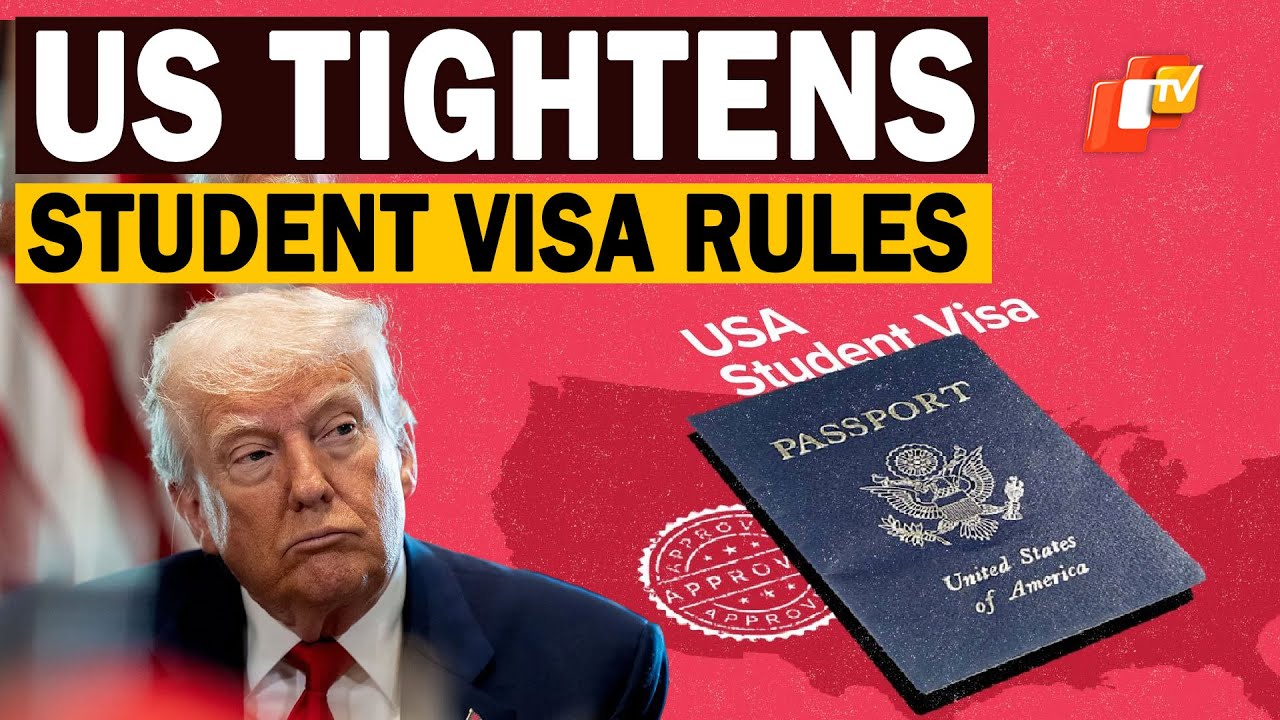U.S. tightens student visa rules in 2025. Learn how the changes affect international students, what new requirements exist, and what students must know now.

🎓 A Sudden Shock for International Students
The U.S. has introduced stricter student visa rules, and it’s making waves around the world.
For thousands of students dreaming of studying in America, this feels like a sudden roadblock.
The changes apply to F (academic) and M (vocational) student visas.
And they are being rolled out quietly but quickly.
These new rules are not just policies—they are changing lives.
🧾 What Exactly Is Changing?
Here’s a breakdown of what international students now face:
- Stricter interviews at U.S. embassies
- Students must prove they will return to their home country after studies
- Visa officers now have more power to deny applications based on suspicion
- Duration of stay is under tighter watch—no more automatic extensions
- Rules around Optional Practical Training (OPT) may become more selective
Many feel the process is no longer fair, but fearful.
💬 Voices from Around the World
Students from countries like India, Nigeria, China, Nepal, and Brazil are already feeling the heat.
“I studied day and night, got into a U.S. university, but now I don’t even know if I’ll get my visa.”
— Priya, student from Mumbai
“It’s like they want our tuition money, but not us.”
— Carlos, student from São Paulo
These stories aren’t just news—they’re real people, with real dreams.
🧠 Why Did the U.S. Make These Changes?
The U.S. government says the goal is to protect the integrity of the visa system.
Officials are worried that some students use student visas to enter and stay illegally.
They want to make sure students leave the country after their studies unless legally permitted to remain.
There’s also growing concern over national security, especially after health threats like pandemics and global unrest.
In fact, just recently, a new COVID variant was found at U.S. airports—adding another layer of caution at the border.
✈️ Entering the U.S. Now Feels Like a Test
Even those with valid visas are having a tough time at U.S. airports.
Border security is tighter than ever.
You can be asked:
- Why are you studying this course?
- How long will you stay?
- Do you plan to work or leave after graduation?
For many, this process is emotionally draining.
And with frequent health screenings and virus alerts, like the NB.1.8.1 variant, the pressure is only rising.
📉 What This Means for American Colleges
This could hurt U.S. universities, especially smaller and lesser-known colleges.
International students bring in billions of dollars every year.
They help fund schools.
They bring global diversity to classrooms.
And many go on to contribute to innovation, healthcare, and science in the U.S.
Now, there’s fear that top talent may choose Canada, the U.K., Australia, or Europe instead.
✅ A Glimpse of Hope
Not all news is grim.
Some universities are stepping in to help.
For example, Harvard supported international students by giving them clear visa guidance and legal support.
Advocacy groups are also calling for fair and transparent visa processes.
They are urging the government to balance security with compassion.
For ongoing updates, check trusted sources like America112 News.
🌍 Final Thoughts: Keep the Doors Open
Education is a bridge between nations.
It’s how we build understanding, peace, and progress.
But when visa rules become walls, dreams are crushed before they even begin.
Yes, security matters.
But so does giving students a fair shot at building their future.
Let’s hope the U.S. remembers this.
Because the world is watching.

